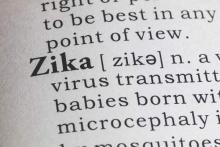Health officials are looking into a case of Zika virus infection in Utah, where a person was infected after caring for an elderly family member with the virus.
In the new case, the person had not recently traveled to an area with Zika and had not had sex with anyone with Zika infection or who had traveled to an area with Zika. Also, there is no current evidence that the Aedes mosquitoes, known to spread Zika virus, have been active in Utah.
The elderly Utah man who was first infected with Zika died in late June of unknown causes. He had traveled to an area with Zika, and laboratory tests revealed that he had virus levels more than 100,000 times higher than seen in other samples of infected people, according to the Centers for Disease Control and Prevention.
The Utah Department of Health and the CDC are investigating the possible cause of infection.
“We are trying to determine if the contact between the very sick elderly patient and the person played a role in how the person got sick,” Satish Pillai, PhD, deputy incident manager with CDC’s Zika response, said during a news conference. “We don’t have all of the answers right now, but we will continue to share the information as it comes available.”
CDC currently is not altering its instructions on the use of personal protective equipment.
“I think what this highlights is the fact that when you have an infection like Zika virus ... wherein a good percentage of patients don’t actually have symptoms, it means that it’s as important as ever to stick with good adherence to standard precautions,” Dr. Pillai said. “Just like we assume anybody might carry hepatitis or HIV, we don’t wait for a positive diagnosis in order to prevent blood or body fluid exposure. The same thing is true with Zika virus, and I think this is a great example of why we should never take chances, but always adhere to careful standards of touching.”
“The new case in Utah is a surprise, showing that we still have more to learn about Zika,” Erin Staples, MD, PhD, CDC medical epidemiologist on the ground in Utah, said in a statement. “Fortunately, the patient recovered quickly, and from what we have seen with more than 1,300 travel-associated cases of Zika in the continental United States and Hawaii, nonsexual spread from one person to another does not appear to be common.”
mschneider@frontlinemedcom.com
On Twitter @maryellenny


